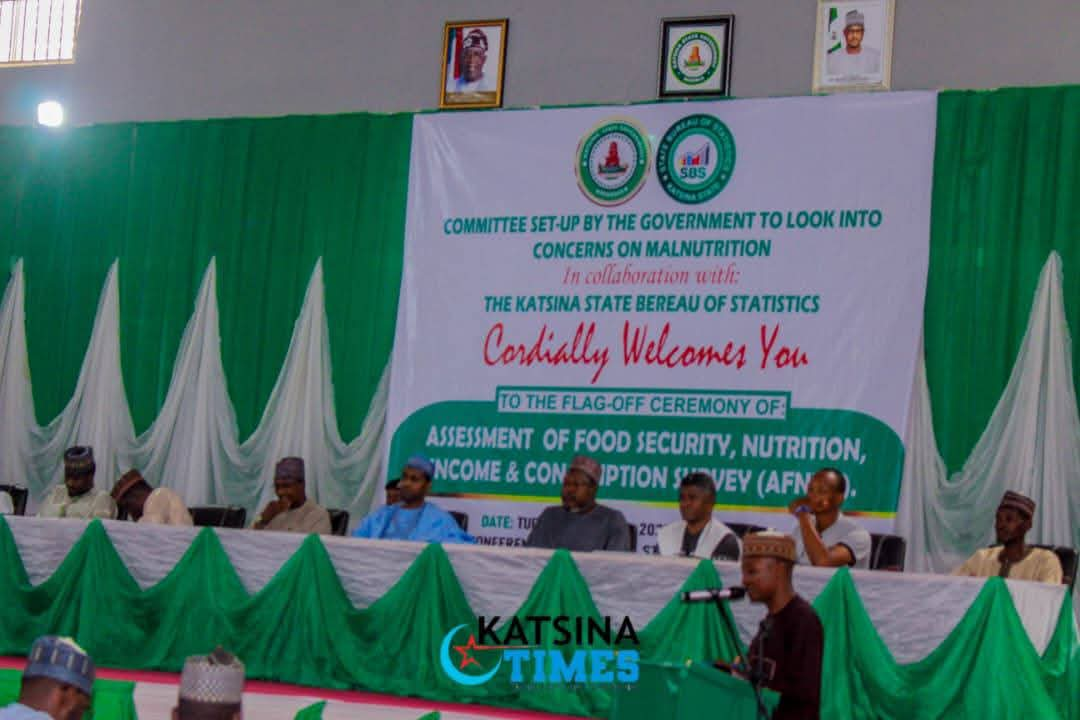Katsina State Government Conducts One-Day Assessment on Food Security, Nutrition, Income, and Consumption

By Taibat yakub
In a pivotal initiative aimed at improving the quality of life for its citizens, the Katsina State Government recently organized a one-day assessment dedicated to evaluating food security, nutrition, income, and consumption patterns throughout the region.
Held at the State Secretariat, the assessment sought to comprehensively identify existing challenges and develop strategic solutions to enhance food security while promoting better nutritional standards among the population.
The event featured several dignitaries, including the acting Governor of Katsina State, represented by commissioner of Local Government and Chieftaincy Affairs, as well as the Commissioner for Infrastructure and Rural Development, the Chairman of the Zakkat and Waqqaf Board, and representatives from various NGOs, including UNICEF and ALIMA.
During the event, the commissoner emphasized the urgency of food security, particularly in northern states like Katsina. He stated, "The assessment was organized to measure the availability, accessibility, utilization, and stability of food among households. Additionally, it sought to evaluate the nutritional status of various demographic groups, particularly vulnerable populations, including children, pregnant women, and the elderly."
The goals outlined for the assessment include:
Evaluating Food Access: Understanding household access to food and the economic factors influencing this accessibility.
- Nutritional Evaluation: Analyzing family dietary intake to identify nutritional deficiencies that could impact health and productivity.
- Income Analysis: Assessing household income levels to understand how financial resources affect food purchasing decisions and overall well-being.
- Consumption Patterns: Identifying commonly consumed food types and their frequency to inform future agricultural and nutritional policies.
While specific data from the assessment has not yet been published, preliminary insights suggested several trends affecting Katsina State. Many households reported difficulties in accessing sufficient and nutritious food due to economic constraints, limited agricultural productivity, and ongoing security concerns.
Furthermore, the assessment highlighted a critical need for nutritional education, as many participants expressed a lack of awareness regarding balanced diets and healthy eating practices.
Government Response
In response to the findings from the assessment, the Katsina State Government has announced plans to:
- Collaborate with local and international NGOs to implement community-based nutrition programs.
- Enhance agricultural initiatives aimed at increasing production and reducing post-harvest losses.
- Organize educational campaigns to raise awareness about nutrition and healthcare.
Taibat is an Nysc member serving at katsina times off-

